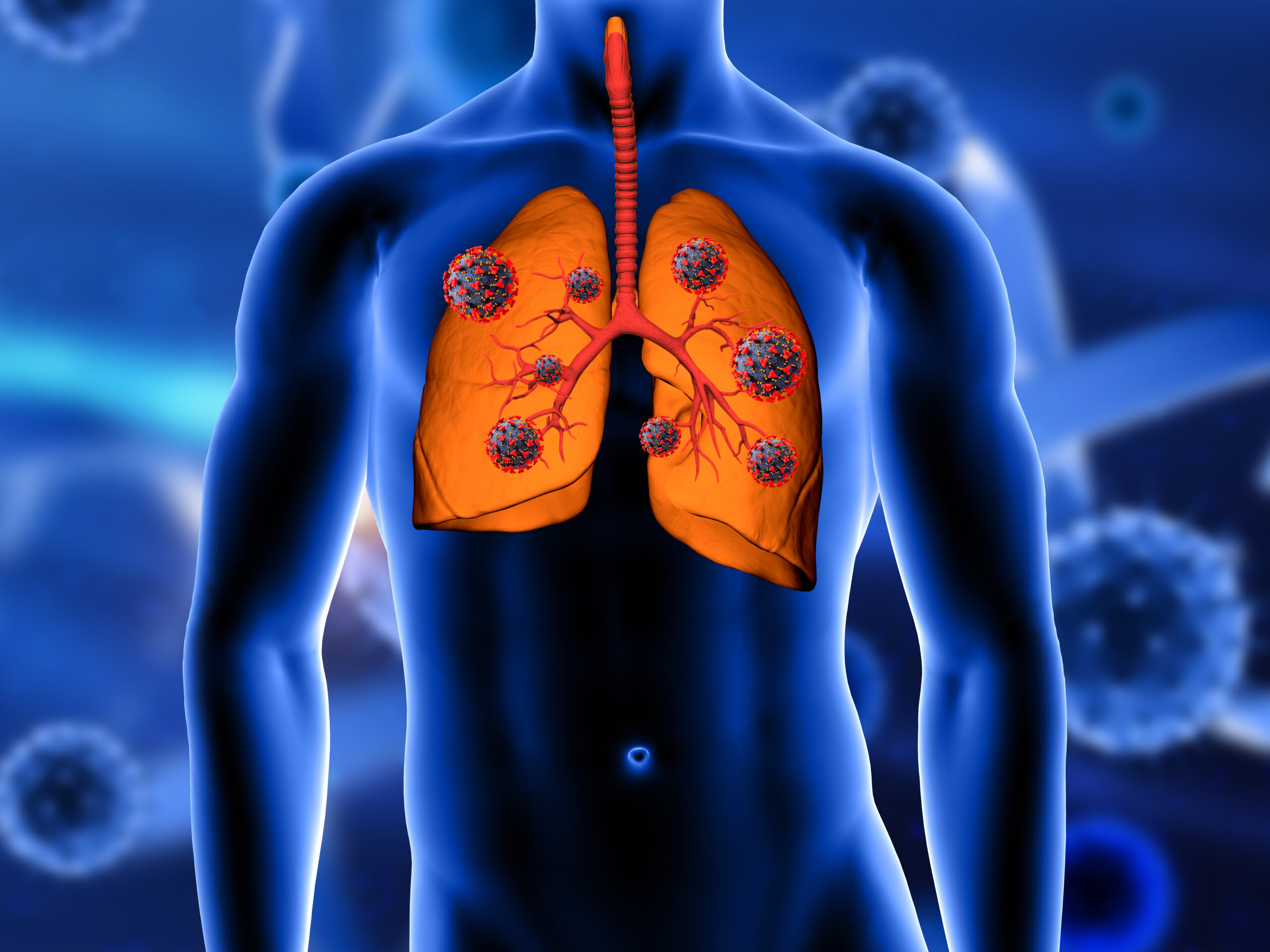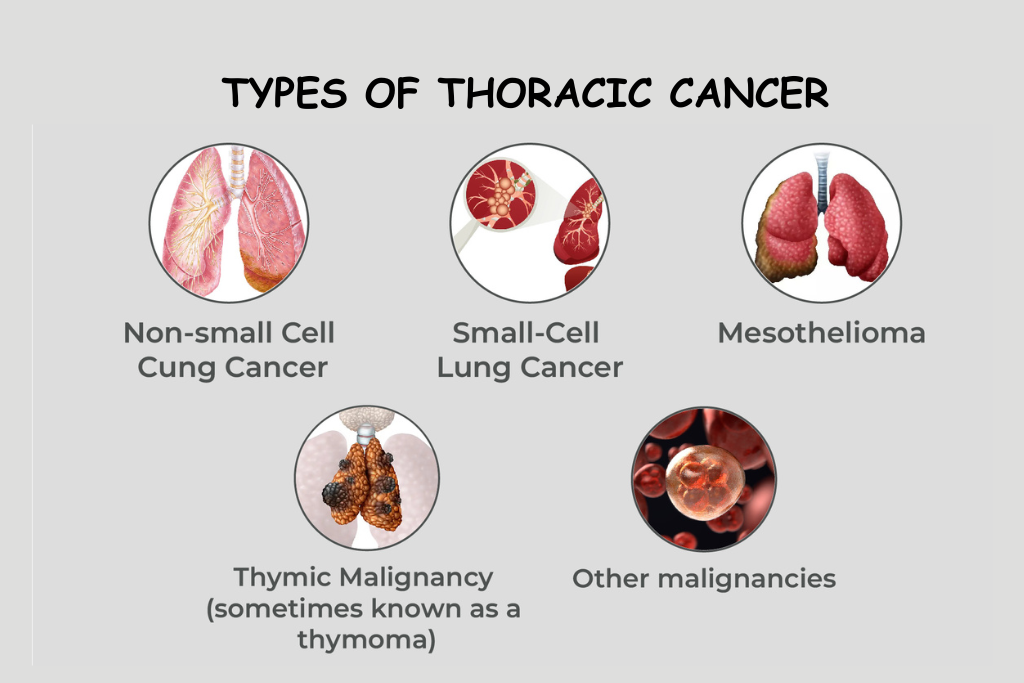
When dealing with a cancer diagnosis, knowledge is one of your most valuable tools. In Surgical Oncology Solutions, we will base our belief that your knowledge about your condition will be the power behind your decision on how to take care of yourself. This guide provides a thorough discussion of thoracic cancer, a complex set of conditions that require professionalism and a compassionate approach to patient care.
Thoracic Cancer Definition
Thoracic cancer entails a malignant mass of tumour that develops in the thoracic cavity that is situated within the chest between the neck and the diaphragm. This is an anatomical area that has some critical following organs, such as lungs, heart, oesophagus and major blood vessels. Thoracic- This has the meaning of ‘the chest’ in the Greek language – ‘thorax’ – and these cancer types attack structures of the body in the vital part of a body – the thorax.
To interpret thoracic cancer, it is important to comprehend that it is not a disease but just a category of different types of cancer that arise this time in the chest cavity or at any time detected elsewhere. This is due to the complexity of this area and the complexity of the system of organs and tissues; it is especially difficult to diagnose and treat thoracic cancers, and special oncological teams should be involved in these cases.

Types of Thoracic Cancer
There are various types of cancer that can occur in the thoracic cavity, each having its peculiarities and modes of treatment:
- Lung cancer is still the most prevalent malignancy of the thoracic region, which is subdivided into non-small cell lung cancer (NSCLC) and small cell lung cancer (SCLC). Such cancers start in the lung tissue and may extend to other regions within the thoracic cavity.
- Oesophageal cancer is a complication that develops in the pipe between the throat and the stomach. The fact that the oesophagus is essential in digestion and also amputates other key organs makes the treatment of this type of cancer quite tricky.
- Pleural mesothelioma makes inroads to the thin lining which covers the lungs and chest region. The disease is a highly aggressive type of cancer closely linked to contact with asbestos, and it needs exceptionally specialised treatment strategies.
- Thymic tumours are formed in the thymus gland that is situated behind the breastbone. These are abnormal cancers that are rare and may impair the functionality of the immune system and may respond to treatment provided in a multidisciplinary manner.
- Chest tumours associated with the chest wall may occur in the ribs, muscles, or soft tissues of the chest wall and have to be surgically accessed and excised using surgical proficiency, as they may compromise the integrity of the chest wall during easy extraction.
Our experienced team at Surgical Oncology Solutions have been dealing with different types of thoracic cancer over the last twenty years, and each case they undertake comes with a wealth of clinical experience gained in large cancer institutions throughout India.
Thoracic Cancer Causes
To prevent and plan for the treatment of thoracic cancer, understanding its causes can be beneficial. These cancers are developed because of several reasons:
- Level of environmental exposures: Exposures also have a significant role to play, and the primary cause of lung cancer is tobacco smoke. The risk is very high, even with exposure to secondhand smoke. Further risks of thoracic cancer are occupational exposures to asbestos, radon, diesel exhaust, and some chemicals.
- Genetic Factors: It is also associated with the development of cancer, where there are people who are inherently predisposed to cancerous growth of the thoracic cancer through their mutated genes. A hereditary history of lung or other thoracic-type cancers may indicate a higher potential for genetic vulnerability.
- Lifestyle factors such as diet, alcohol use and general health conditions have an impact on the risk of cancer. It is possible to be at risk of oesophageal cancer due to poor nutrition and excessive alcohol consumption. Still, it is also a protective factor against the disease as a consequence of a healthy lifestyle.
- Age and gender also play a role, and studies show that most thoracic cancers happen in patients who are above 50 years old. There are gender variations in various forms of thoracic cancer.
- Medical History Before multiphasic radiation therapy to the chest region, some lung diseases have been identified to promote the occurrence of thoracic cancer later in life.
Thoracic Cancer Symptoms
The symptoms of thoracic cancer can be detected early to enable prompt diagnosis and treatment. But the symptoms usually emerge late and may manifest themselves as harmless in the beginning:
- Respiratory symptoms cannot be overridden; persistent cough fades with the period of time, shortness of breath when normal, wheezing, or blood-coughed. These symptoms should receive urgent medical examination, particularly in patients who have risk factors.
- Chest-related symptoms involve chest pain that is either relieved by deep breathing or coughing, or this pain is accompanied by chest pains which can extend to the shoulder and arm.
- Systemic symptoms involve the lack of a known reason for weight loss, generalised tiredness, appetite elimination and frequent infections. Such unspecific symptoms are frequently the signs of a progressive disease, and they need immediate remedy.
At Surgical Oncology Solutions, we notice that the symptoms may be scary. We will provide you with plenty of evaluations so that you feel good during the diagnostic process .
Thoracic Cancer Treatment
Treatment of modern thoracic cancer involves a multidisciplinary approach involving contemporary surgery using the latest technology:
- Among the revolutionary surgical choices is VATS surgery, which offers unmatched accuracy with eventual shortening of recovery time and better outcomes.
- Specialised chemotherapy solutions, including HIPEC (hyperthermic intraperitoneal chemotherapy) and PIPAC (pressurised intraperitoneal aerosol chemotherapy), are the future of well-developed treatments despite their complex and expensive procedures that provide hope to patients with advanced thoracic malignancies.
- Treatment plans are designed on an individual basis and are founded on the cancer type and stage, the health profile of the patient and his or her perception. We acknowledge the fact that no two patients are the same, developing tailored treatment strategies which pay attention both to the medical aspects and to the quality of life aspects.
- Comprehensive support services are not limited to medical care but also to emotional support, nutrition counselling and involvement of the family in the decisions made by the care. We also believe in working on the entire person, as opposed to the cancer.
Thoracic Cancer Survival Rate
Thoracic cancers have very different survival rates according to each type of cancer, the stage at which they are detected and the characteristics of the patients themselves. There are better prognosis associated with early-stage thoracic cancer, where the five-year rate of survival when there is localised is 60-90%. Later cancer stages pose more fabrication, although creative ways of treatment persist in enhancing results.
Survival factors may be governed by the type of cancer and its region, the age and the health of people, its response to therapy, and the availability of care through specialists. The experience of the team of specialists at Surgical Oncology Solutions with complicated cases led to a better outcome for our patients.
Can the importance of early detection be overdone? The consumer population is assessed frequently, and patients at high risk are screened regularly, which sometimes results in an earlier diagnosis at the most effective stage of treatment.
Your Partner in Cancer Care
Surgical Oncology Solutions transform the sorrowful cancer experience into a hopeful platform for healing. We build our reputation on a track record of excellence gained and realised in the working experience of most of the major cancer centres established over the past twenty years, which guarantees that your best is not compromised in any way.
Our consultations can be conducted in a flexible manner, such as a walk-in consultation on Mondays and Saturdays between 9:00 AM and 5:00 PM, or a home video consultation by appointment . We not only treat cancer but also provide comprehensive care (e.g., medical, emotional, and practical).
The treatment of thoracic cancer is a demanding task that needs special knowledge, advanced treatment variants, and humane work. We are determined to support you through the process and give you the accuracy of cancer treatment with the care that you deserve. That is what starts with knowledge and moves to professional help, which will bring your journey to the recovery process and ultimately lead to happiness in your future.




